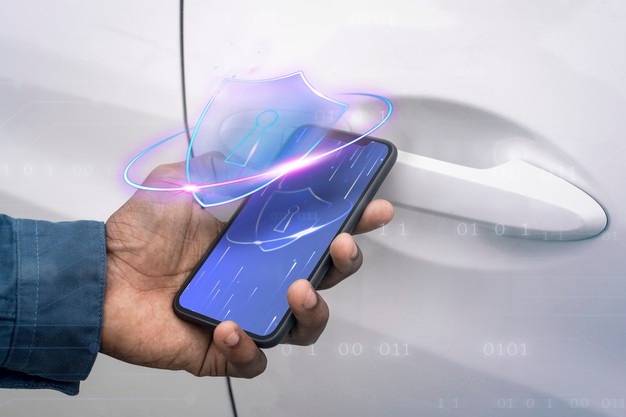- 1.1 Use A Passcode To Protect Your Phone
- 1.2 Install an Antivirus App
- 1.3 Enable Find My iPhone/Android Device.
- 1.4 Charge Your Phone Regularly
- 1.5 Be Aware Of Public Wi-Fi Networks
- 1.6 Update Your Phone’s Software
- 1.7 Enable Remote Wiping
- 1.8 Host Your Cloud
- 1.9 Only Download Apps From Trusted Sources
- 1.10 Avoid Clicking On Unknown Links
The majority of individuals can’t fathom their lives without their cell phones. That is, for the most part, a good thing. No matter where we are, smartphones allow us to remain in touch with friends and family, obtain critical information, and accomplish essential chores. However, tremendous power comes with great responsibility, which in this instance includes taking precautions to protect your smartphone. Here are several pointers to get you started.
10 Tips to Keep Your Smartphone Safe
Use A Passcode To Protect Your Phone
Using a password is one of the easiest and most effective ways to safeguard your smartphone. Even if they have your device in their possession, unauthorized persons will be unable to access it. It’s also a good idea to use complicated, difficult-to-guess passwords. Furthermore, don’t reuse your passwords across all of your online accounts. Using password management software helps simplify the process of setting and storing complicated passwords.
Install an Antivirus App
Install an excellent antivirus program to ensure that your device is safe. This is especially critical if you use your phone for business or other sensitive data-related activities. An antivirus program will protect Your smartphone from viruses and other internet risks. There are several good free and paid choices available. They can also aid in the recovery of your device if it is ever misplaced or stolen. Additionally, by visiting here, one may quickly download an antivirus application.
Enable Find My iPhone/Android Device.
If your phone is ever lost or stolen, you can use this helpful tool to track its position and remotely lock or delete its contents. It may be activated on iOS and Android devices by logging into your iCloud/Google account on a computer or via one of the device applications. This provides you with some peace of mind if your phone goes missing.
Charge Your Phone Regularly
A phone that is deceased is unusable. Not only will it not give you the required communication and information access, but criminals are more inclined to take a device that has already lost its functionality. Make it a habit to charge your phone every night so you’re never caught off guard. Consider purchasing a battery case for more power when you’re on the road.
Be Aware Of Public Wi-Fi Networks
If you’re not careful, public networks can be readily hacked, allowing someone to access your device. Avoid entering personal accounts or inputting passwords while connecting to one of these networks. Instead, wherever feasible, use your cellular data connection. Also, wherever possible, use a strong password and two-factor authentication.
Update Your Phone’s Software
Keeping your smartphone’s software up to date is another crucial action you can take to protect it. This covers your phone’s operating system and all the apps you’ve loaded. You’ll reduce the vulnerability of your device to hackers and cybercriminal assaults. Also, be sure to install any antivirus software updates that are available for your phone.
Enable Remote Wiping
Enable remote wiping if you cannot access your phone if it has been stolen. This tool allows you to remotely delete all of the data on your phone, making it harder for others to access your information. Furthermore, even if your phone is misplaced, you may employ a remote wiping application.
Host Your Cloud
You are not required to save all of your information on the cloud. Hosting your server with secured files would be a superior choice. This way, you’ll always have access to your data; no one else can access it unless they know your password. You may also be sure that your data is safe during a disaster. You can also access your cloud from any device, a huge bonus.
Only Download Apps From Trusted Sources
Malicious apps can wreck your smartphone and steal your personal data. Apps should only be downloaded from trusted app shops like Apple’s App Store or Google Play. This way, you’ll be less likely to encounter spyware or viruses. Also, before installing an app, make sure to check the reviews. It’s probably not worth your time if it has a poor rating or a lot of negative feedback.
Avoid Clicking On Unknown Links
Phishing attempts are frequent and may easily trick someone into clicking on a malicious link. These URLs may appear legitimate, but when you open them, malware is downloaded into your phone, which can steal your personal information. To avoid this, hover over a link to see where it will take you before clicking. Do not click if the URL appears strange or does not match your expected site.
Conclusion
To sum up, following the steps recommended above will assist you in keeping your smartphone safe and protected. You’ll be OK if you closely monitor your gadget and use it responsibly.
